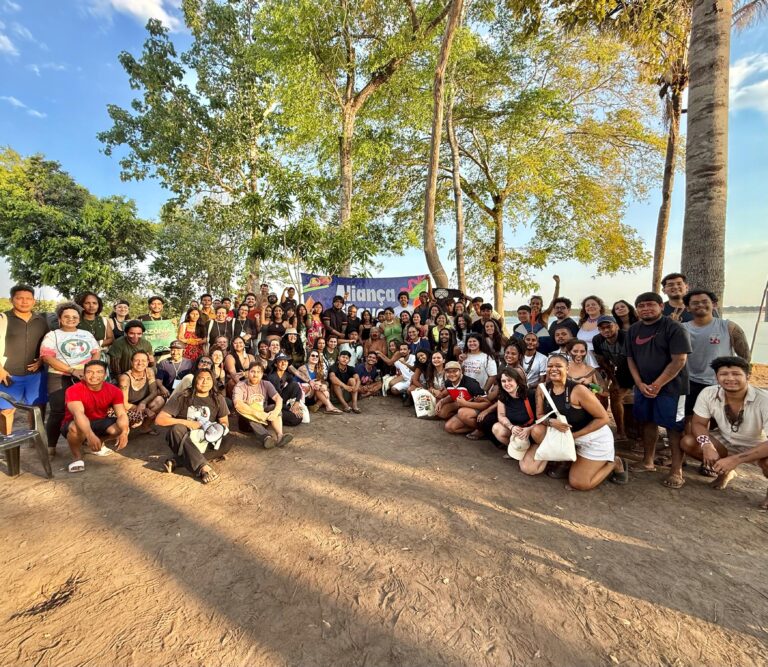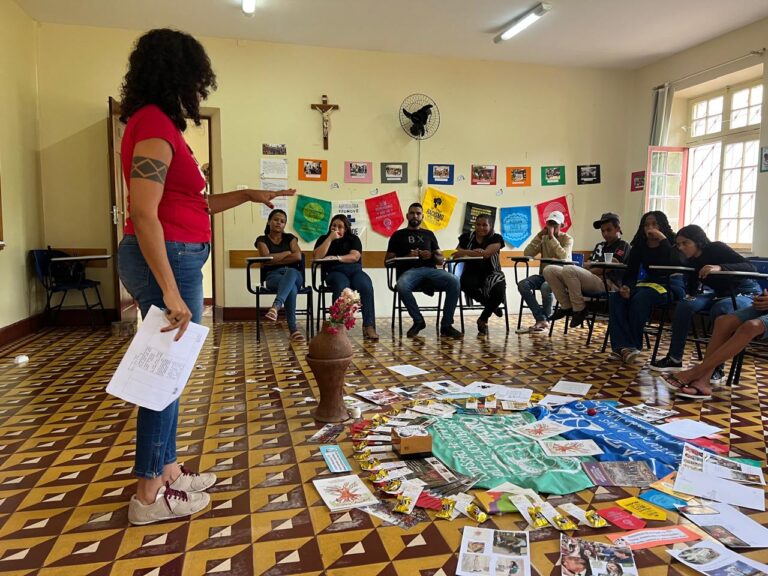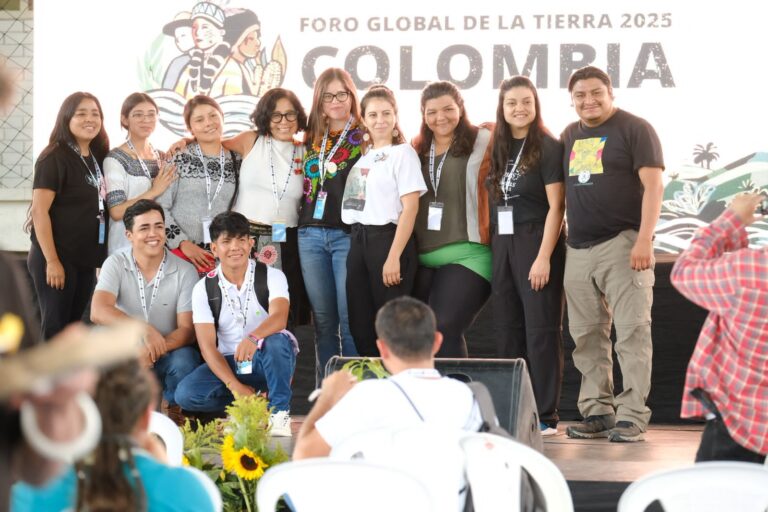Exchange of experiences to share knowledge and flavors from the forest uses of the Caatinga
Tatiane Faustino
Member of the Commission of Young Multipliers of Agroecology and student in Agroecology at UFRPE
Students, teachers, and professors of the Bachelor in Agroecology course of the Federal Rural University of Pernambuco (UFRPE), Recife campus, have been getting to know the experience of the Santa Rita Artisans in the Santa Rita Farm, rural area of Triunfo (PE).
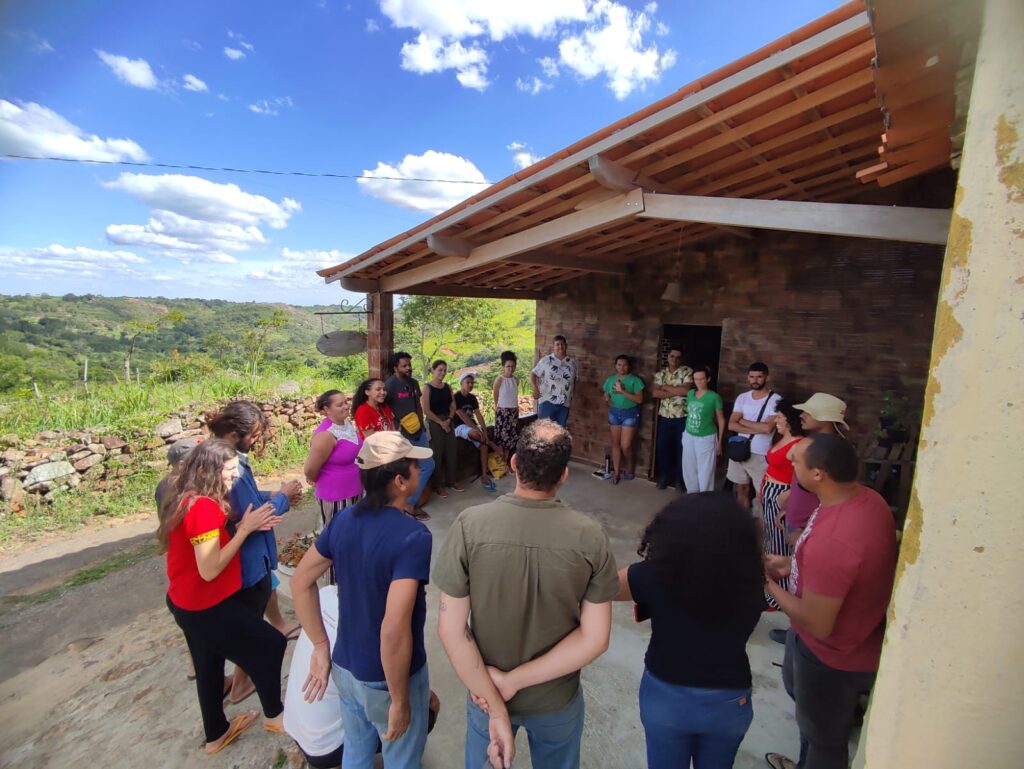
The agroecology course uses the alternation pedagogy methodology, which guarantees the time of study at the university and the time of study in the community, prioritizes the students’ experience and the exchanges to get to know the territories better. The Sertão do Pajeú entered the route because there is a student in the class, Tatiane Faustino, a young woman from the community of Umburanas, municipality of Afogados da Ingazeira (PE), member of the Commission of Young Agroecology Multipliers (CJMA), assisted by the Centro Sabiá.
In this visit, we can hear the story of Nazilda and Felícia who are peasant women and Quilombolas. They brought up strong issues involving peasant society, especially on agrarian issues. One of the outstanding issues is about access to land. The farm where they live is land owned by heirs and they are no longer able to perform some agricultural activities due to conflicts between the families.
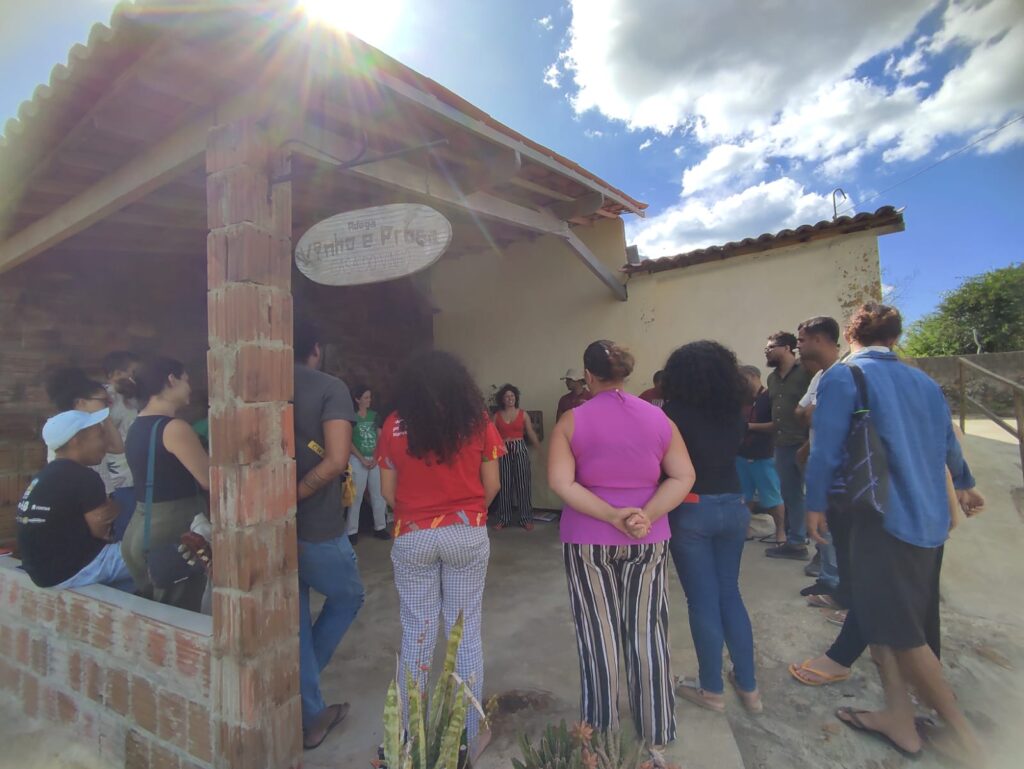
Another important question was about strategies to continue living in the countryside. Processing the fruit production to make fermented products was the way out. Besides taking advantage of the fruits of the region, it generates income and food security for the two of them and for other families in the community. Nazilda and Felícia are mother and daughter, they produce and sell handmade fruit fermented products, cachaças, liqueurs, jams, jellies, coffee, cookies, preserves, and handicrafts in their own space, Adega Vinho e Prosa.
Fermented products are the main production. It was developed from knowledge about the fermentation process of artisanal beverages in a workshop held by the Centro Sabiá. Today it is a pioneer production in the Sertão do Pajeú. Felícia highlighted the importance of the CJMA and Sabiá in this process of organizing production and in her organization as a rural youth.
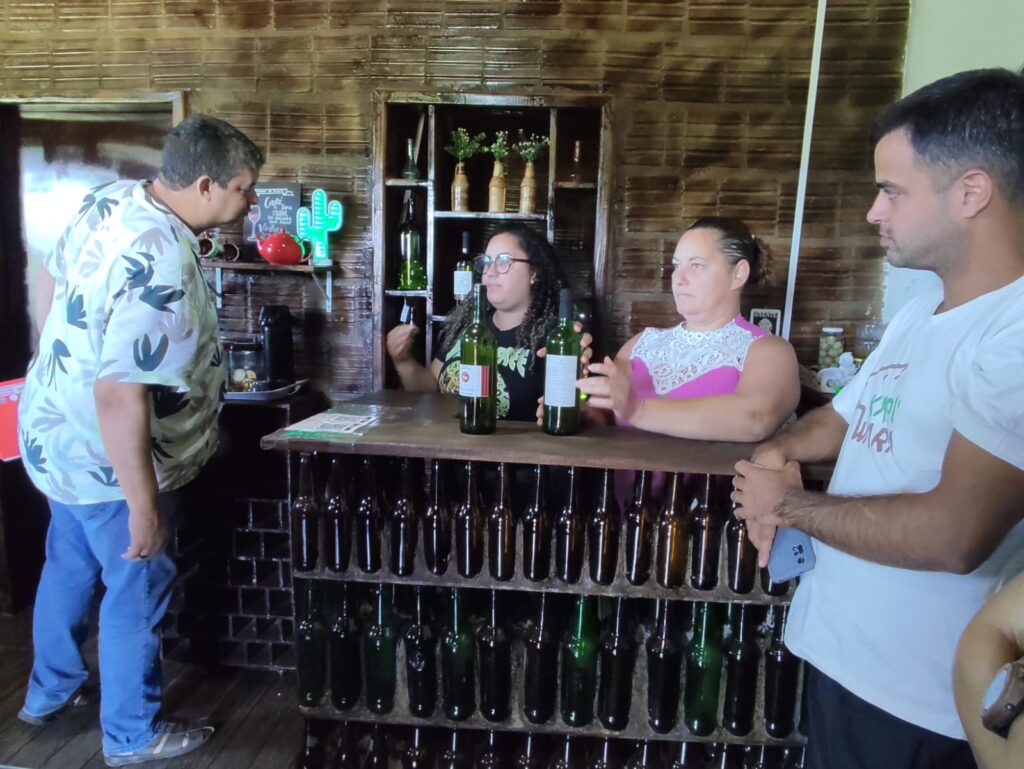
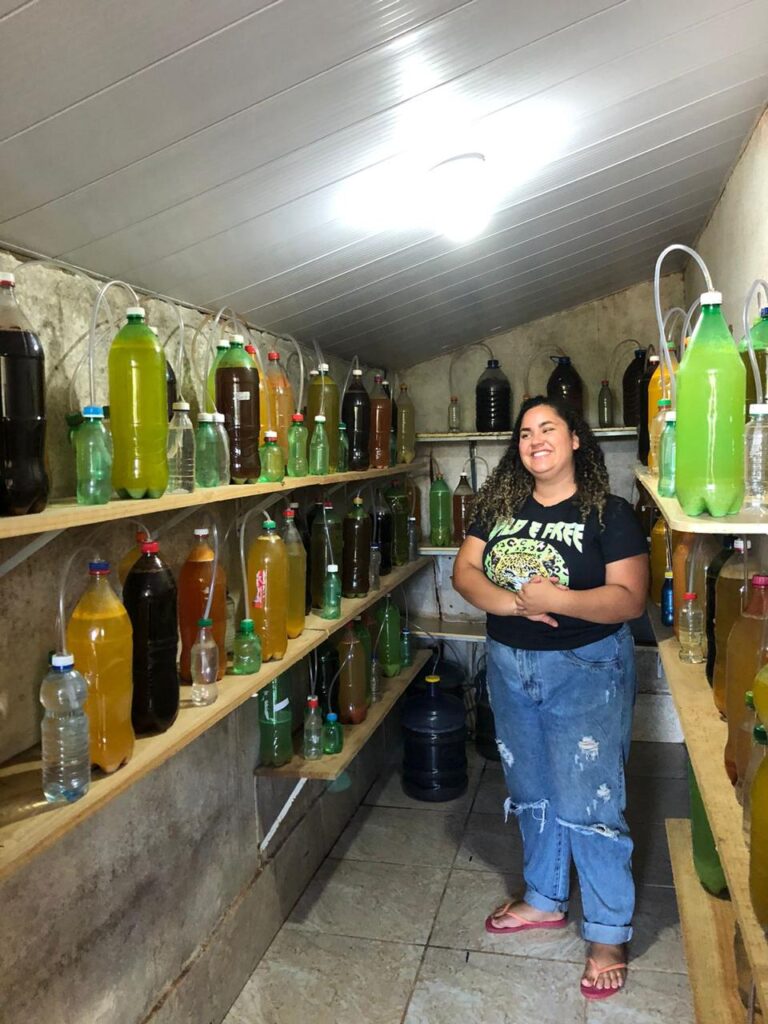
With joy and emotion, Nazilda spoke proudly of her daughter Felícia being the first woman in her family to attend a public university, “this is a milestone, most of the women in my family didn’t have the opportunity to study and today I see my daughter graduating”.
Another interesting aspect of Artesanais Santa Rita is the articulation with 11 families, who buy the fruits and other productions, generating income for the farming families of the community and the Pajeú region. Currently, their experience and space are part of the tourist route of the city, receiving daily tourists from several places in Brazil. The experience made it possible to learn about the history of Nazilda and Felícia in the fermentation process and in the organization and participation in the construction of Agroecology in the territory, besides tasting the wines, liqueurs, preserves, breads, and a delicious mungunzá (a typical regional dish).
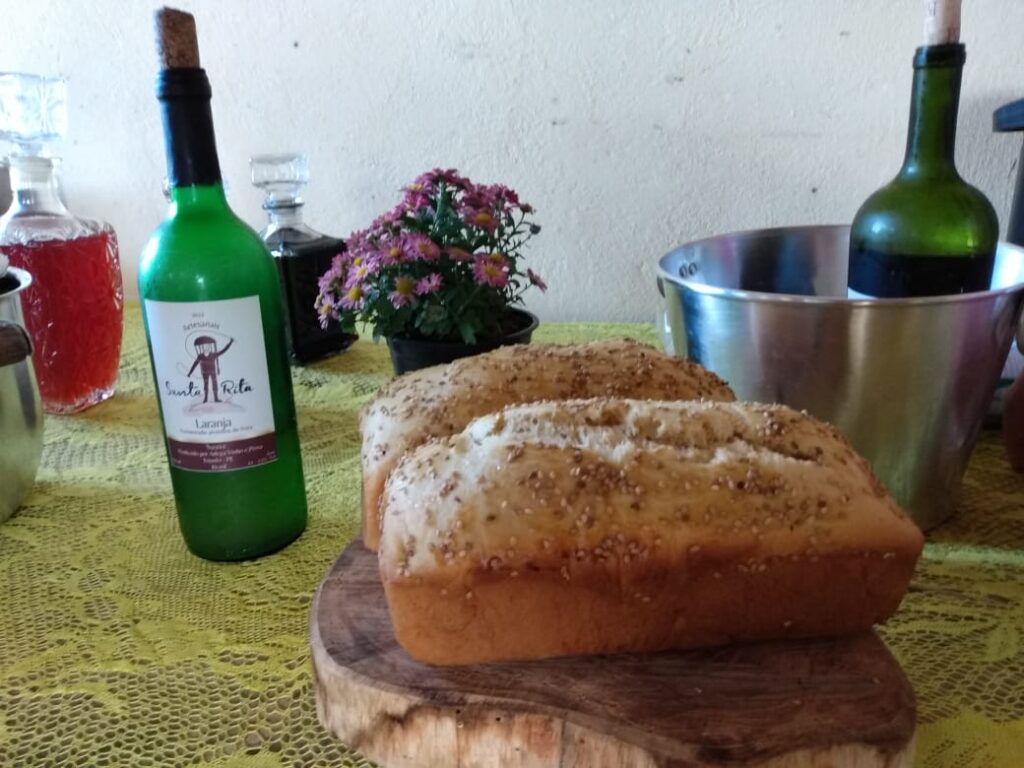
For me this was a very important moment, because it allowed moments of exchange and experiences between the university and the family, reaffirming the commitment to education. We learned that the organization of rural families is essential for living with the semi-arid, for building a dignified life for rural people, and especially for women and youth.
Nothing found.


